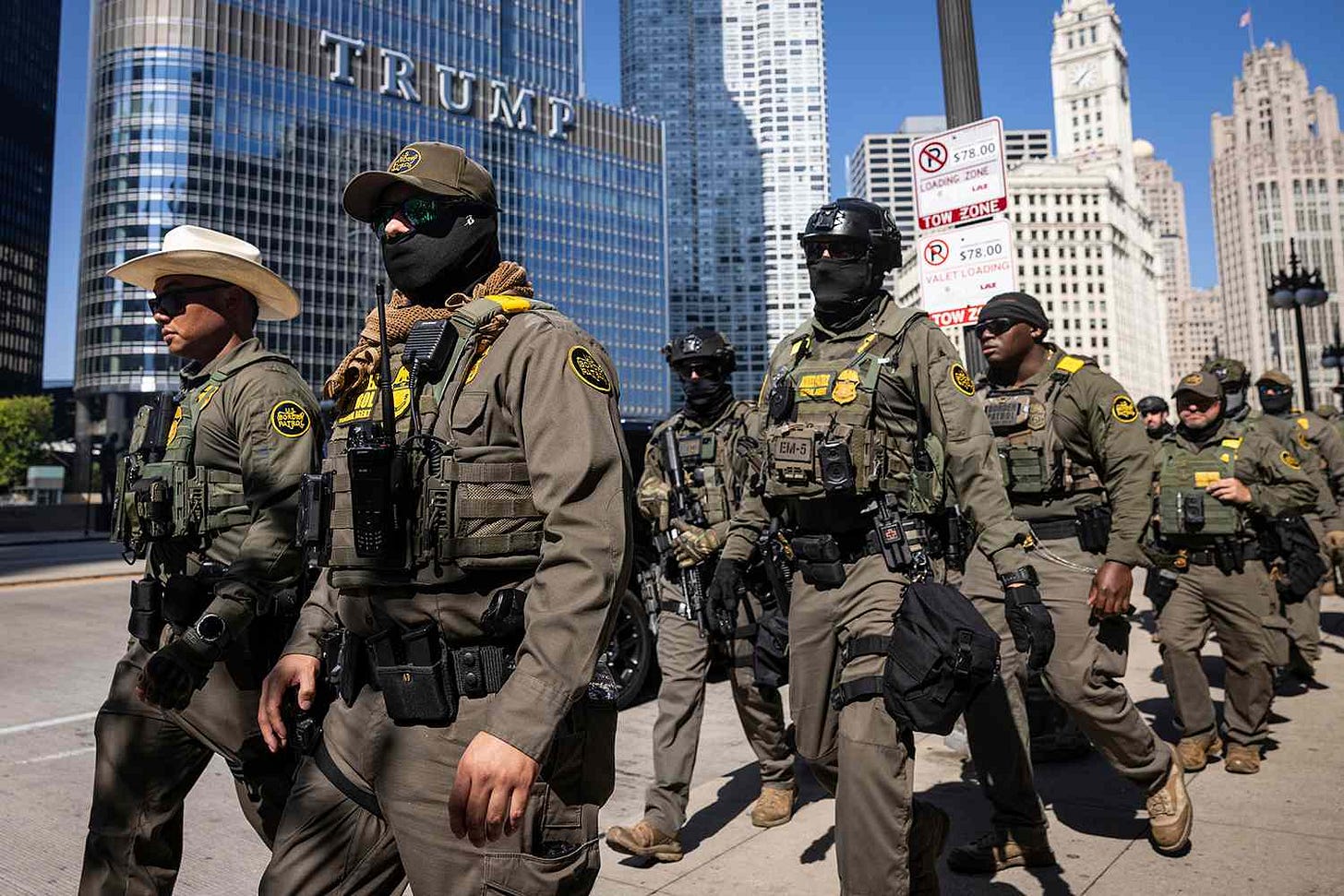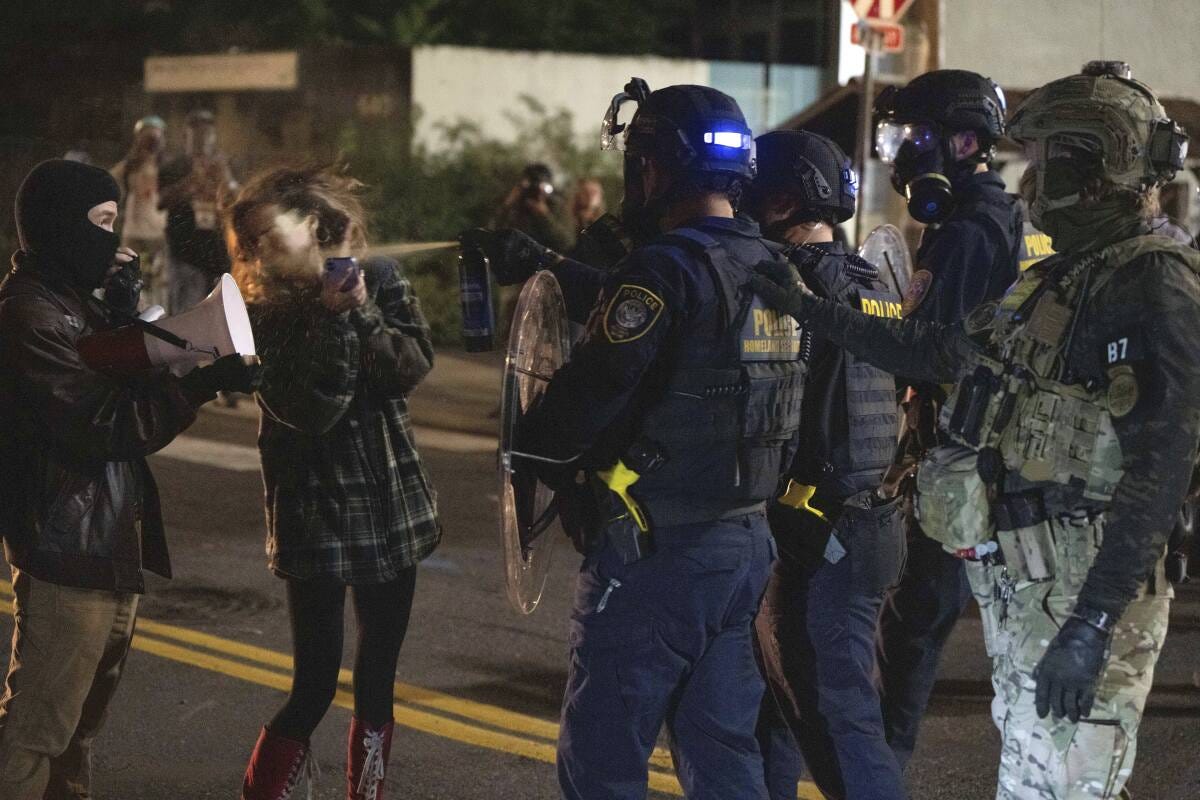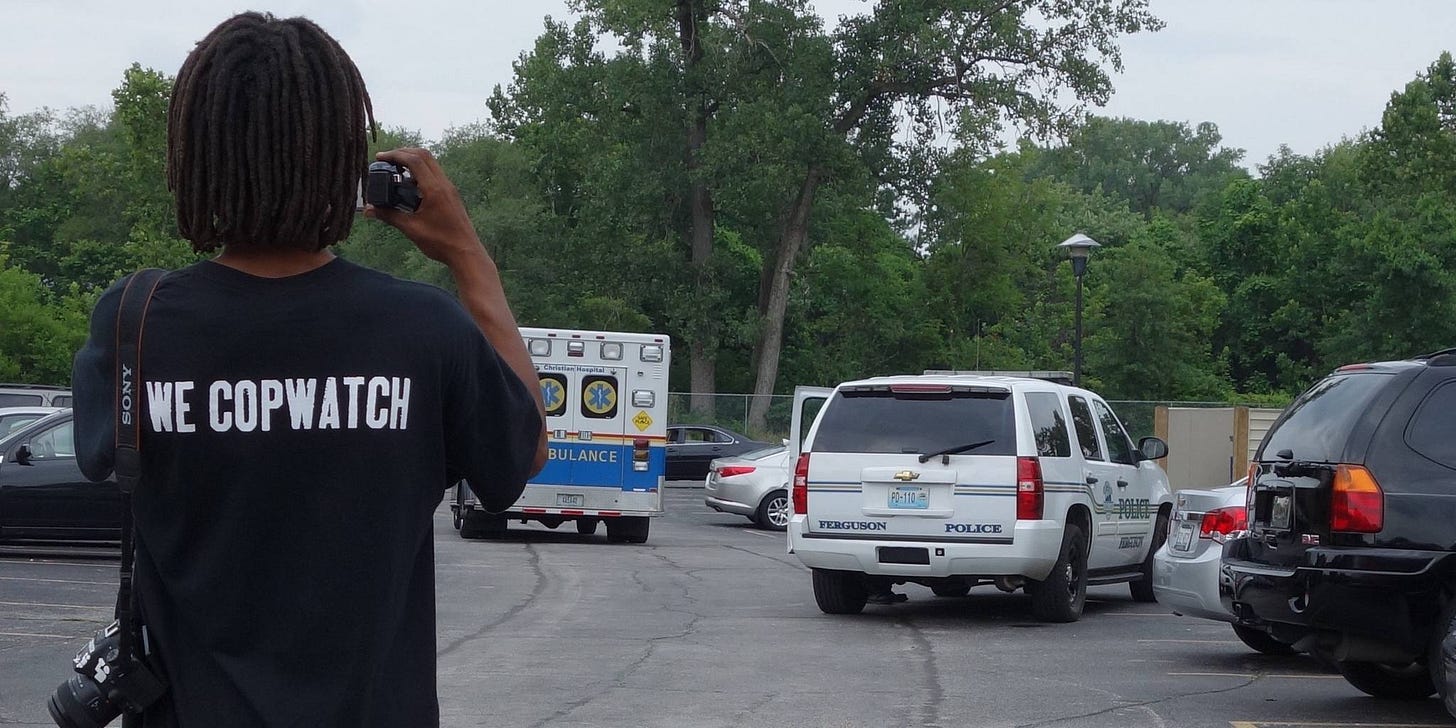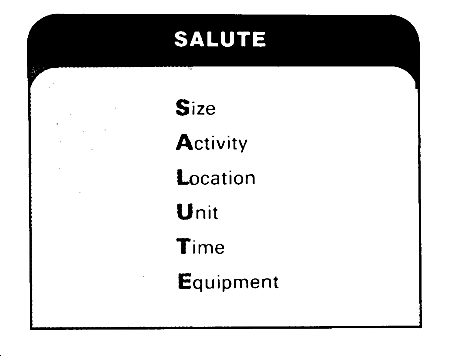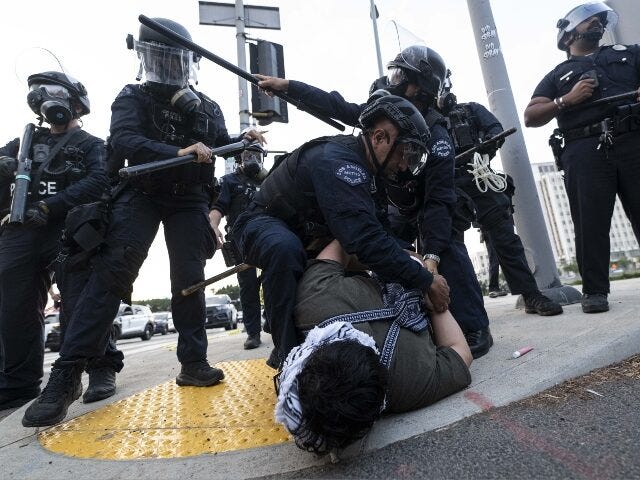Federal law enforcement are conducting obscene military-style raids and deploying masked plainclothes agents to strongarm unsuspecting civilians into a sprawling deportation machine. A made-for-TV apartment building sweep featuring agents rappelling down from a military helicopter. A multi-agency raid to capture dozens for the shocking crime of attending an unauthorized horse race. Troops on the streets of Los Angeles and Memphis and Chicago and Portland.
The stated aim is clear: cleansing the imperial heartland of those who Trump on the campaign trail of “poisoning the blood” of the nation. But this shock-and-awe paramilitary policing has another goal—to beat the rest of us into silent, if disapproving, bystanders. To coerce us into accepting the violence as the new American norm. To scare us into inaction, acquiescence, betrayal—of our neighbors, our communities, and ourselves.
This is a guide to acting otherwise. It’s a set of best practices compiled from activists and legal observers around the country for those who might come across an ICE raid, which is potentially anybody in the US. These tips only work if we study, consider, and internalize them in advance—they’re no use after the fact.
1. Confirm
Immigrant communities are already experiencing a deluge of fear, mis- and disinformation, particularly in cities targeted for enhanced immigration enforcement. Spreading rumors or fear-mongering is doing the state’s work for free. Before sharing information, do your best to confirm it yourself.
2. Observe
You’re witnessing a chaotic, violent situation, but do your best to assess the material facts as best you can. Use the acronym SALUTE: size/strength, activity, location, uniform/clothing, time and date, and equipment.
-
Size: Three people
-
Activity: Detaining and attempting to handcuff one person
-
Location: At the intersection of Street A and Avenue B
-
Uniform: Wearing plainclothes and masks
-
Time/date: Thursday at 9:30 AM
-
Equipment: Handcuffs and handguns
We want to share usable, actionable information, not just increase the level of panic in our communities.
3. Report
Report the above information to your local rapid response network; there are 22 in California alone. Here are links with information for rapid response hotlines in Chicago, Los Angeles, Memphis, Philadelphia, and Portland, OR. If you have a whistle, blow it to alert others in the area.
4. Record
Despite DHS Secretary Kristi Noem’s claims to the contrary, videotaping federal agents in public is protected under the First Amendment, as long as you aren’t obstructing their official duties (see below). Record law enforcement, not people who may or may not be resisting, and resist the urge to post anything even potentially incriminating on social media.
On noncompliance and obstruction
Obstructing a federal agent is a crime, so I of course am not promoting doing any of the sort. But without endorsing any criminal act, I am duty-bound as a responsible citizen journalist to report that autonomous individuals have allegedly boxed ICE agents in with cars, followed them to report their home addresses, and physically de-arrested ICE kidnap victims.
Are these acts legal? Hell no! Did they impair the far greater violence of kidnapping and deportation? Unclear! Are they the right thing to do? Hard to say! Did MLK famously write that “one has a moral responsibility to disobey unjust laws”? I’m not sure about that one either!
But what’s clear is you don’t have to go out of your way to make their nefarious job easier. You don’t have to get out of their way and answer their questions in the most expeditious way possible. (You should not, for the record, answer any questions by any law enforcement officer whatsoever.) You don’t have to let them use the bathroom or order food at the place you work. Lying to law enforcement is a crime; wasting their time is not.
Read more
8 Things You Can Do to Stop ICE (CrimethInc)
Know Your Rights With ICE (Immigrant Defense Project)
Rapid Response Toolkit (CLINIC)
Recording Police in Public (FIRE)
Yes, You Have the Right to Film ICE (EFF)
This post has been syndicated from In Struggle, where it was published under this address.

